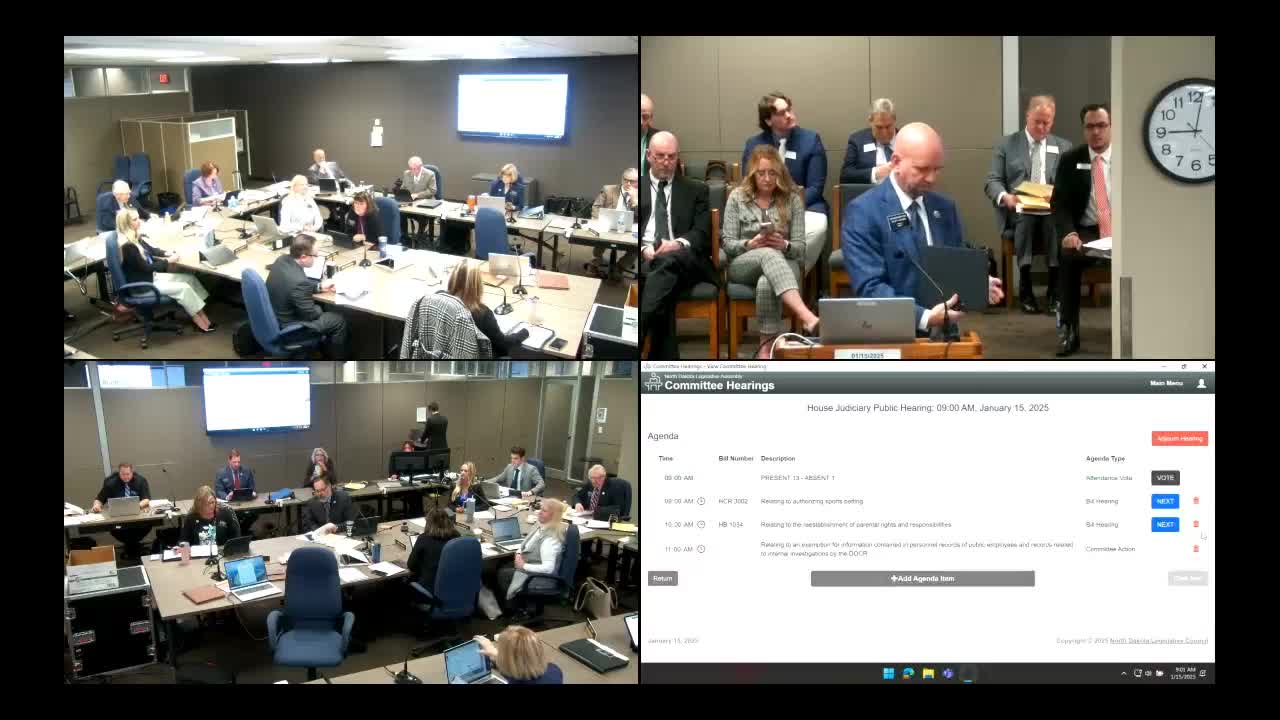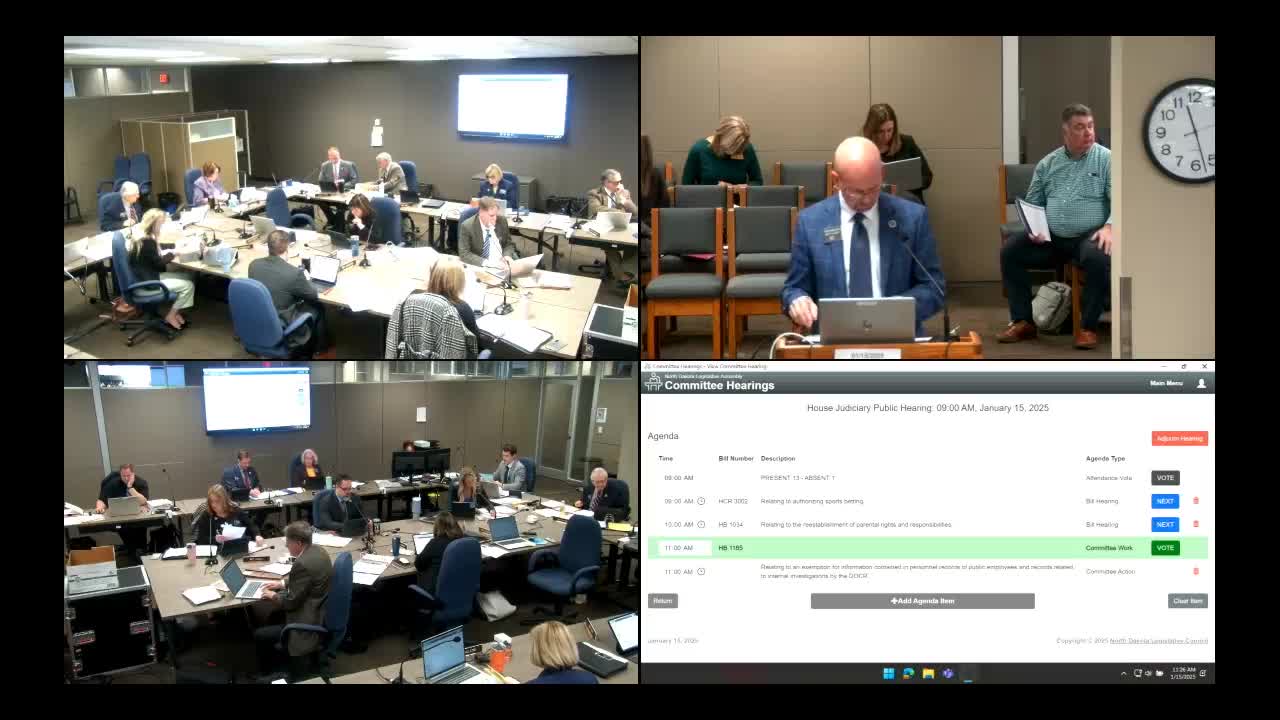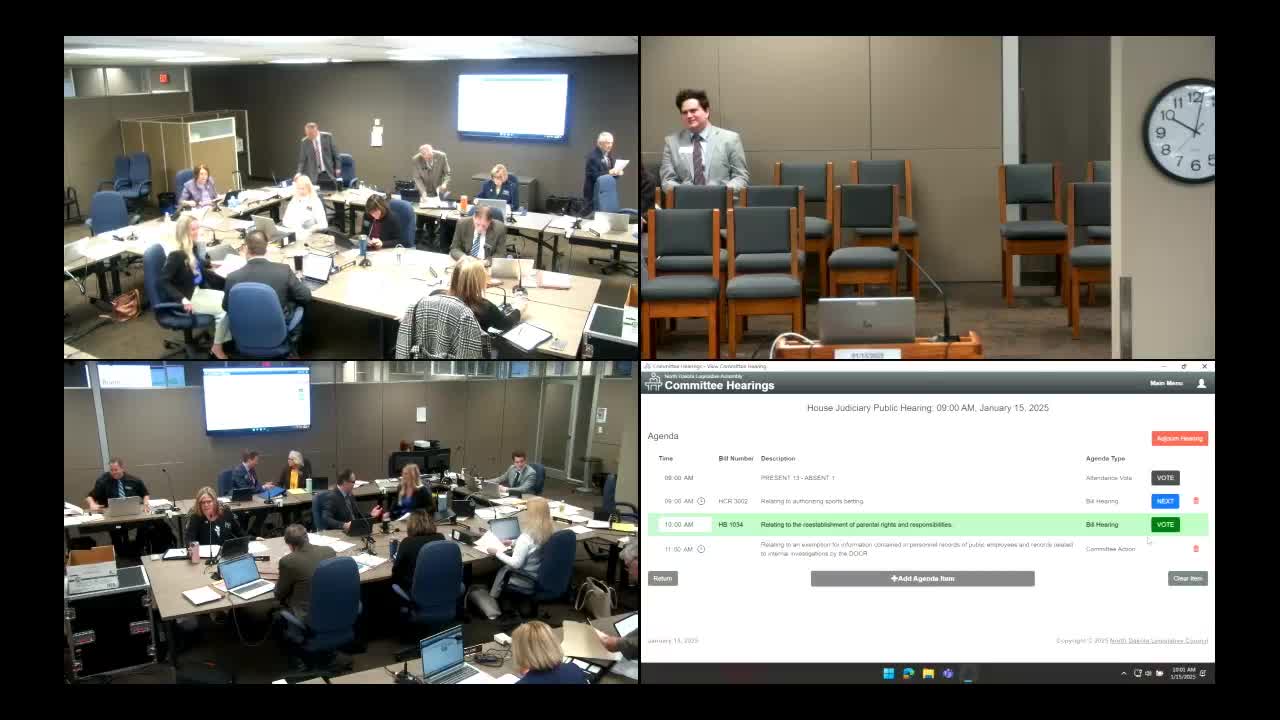Article not found
This article is no longer available. But don't worry—we've gathered other articles that discuss the same topic.

House Judiciary committee hears public testimony for and against putting sports betting on the 2026 ballot

Cities, League of Cities and sheriffs differ over proposed narrower public‑records exemptions for personnel investigations

